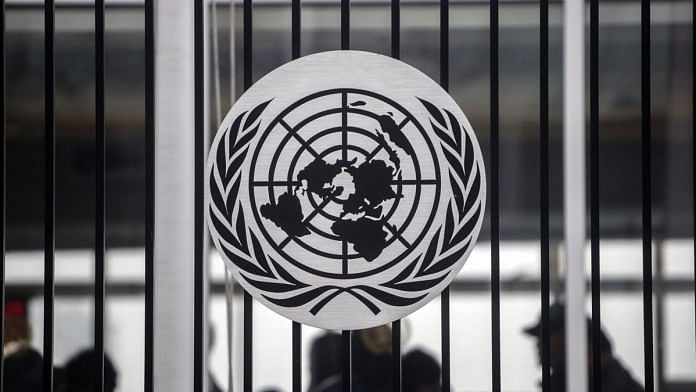United Nations: The threat of a nuclear weapon being used is “higher than it has been in generations” as the current international environment is defined by “competition over cooperation”, and the “acquisition of arms prioritised over the pursuit of diplomacy”, a top UN official said.
Rapid technological developments will begin to impact the international security environment in many different ways, including potentially lowering barriers to the acquisition of nuclear weapons, UN High Representative for Disarmament Affairs Izumi Nakamitsu told a Security Council meeting on Tuesday.
The meeting was convened in support of the Non-Proliferation Treaty (NPT), ahead of the next conference, scheduled for 2020, to review the historic accord.
“Today we find ourselves in an international environment defined by competition over cooperation, and the acquisition of arms prioritised over the pursuit of diplomacy,” Nakamitsu said.
“Regional conflicts might heighten proliferation drivers. The disarmament and arms control framework upon which the gains of the post-Cold War era were made is eroding, but we have nothing else yet with which to replace it,” she said, adding that “as a result, the prospect of the use of nuclear weapons is higher than it has been in generations”.
The NPT, which entered into force in 1970, represents the only multilateral, binding commitment to the goal of disarmament by the states which officially stockpile nuclear weapons.
Its objective is to prevent the spread of nuclear weapons and weapons technology, to promote cooperation in the peaceful uses of nuclear energy and to further the goal of achieving nuclear disarmament and disarmament overall.
Nakamitsu said the use of nuclear weapons, “either intentionally, by accident, or through miscalculation”, is one of the greatest threats to international peace and security, and that “the potential consequences of a nuclear war would be global and affect all member states”.
The Treaty, she said, is widely acknowledged as “the cornerstone of the international non-proliferation regime and the essential foundation of nuclear disarmament. Its role as a pillar of our collective security is likewise an accepted fact”.
Describing disarmament and non-proliferation, the two pillars of the NPT, as “two sides of the same coin”, the disarmament chief said, “Backward movement on one will result in backward movement on the other.”
The durability of the NPT, which has lasted for almost half a century, cannot be taken for granted, she said, adding there is currently nothing to replace the disarmament and arms control framework which is foundational to the post-Cold War era.
With the Treaty coming under increasing stress, the upcoming Review Conference in 2020, she said, will be a “defining moment”. It could either highlight divisions between states and raise questions about their willingness to seek collective security for all, or present “a golden opportunity to make the practical gains that will ensure the Treaty’s continued viability”.
Director General of the International Atomic Energy Agency (IAEA), Yukiya Amano, also briefed the Council, reminding members of the role that the agency plays in the implementation of the NPT, in the creation of an environment “conducive to nuclear cooperation” and in assisting developing countries to use nuclear energy for peaceful means.
However, Amano said the IAEA was facing several challenges, including the steady increase in the amount of nuclear material in circulation, the number of nuclear facilities under IAEA safeguards (the system of inspection and verification of the peaceful uses of nuclear materials), and continuing pressure on its budget.
He said monitoring the nuclear programmes of Iran and North Korea are on the top of the IAEA’s agenda.
Amano said Iran was implementing its commitments under the UN-backed Joint Comprehensive Plan of Action, whose future has been put in doubt by the decision of the US administration to withdraw from the agreement. After 2009, he said, there have been “no credible indications of activities in Iran relevant to the development of a nuclear explosive device”.
As for North Korea, the country’s nuclear programme has significantly expanded over the past decade, carrying out nuclear tests on five separate occasions since 2009, despite the recent lull, he said.
With no inspectors inside the country, the IAEA monitors the situation using tools such as open-source information and satellite imagery.
In a statement released following the meeting, the Security Council announced a reaffirmation of its members’ support for the Treaty, and a commitment to “advance the goals of the NPT as the cornerstone of the nuclear non-proliferation regime and the foundation for the pursuit of nuclear disarmament and the peaceful uses of nuclear energy”.
Describing the NPT commitments taken under the treaty as viable and mutually reinforcing, the statement underscored the need for its full implementation, and the importance of achieving universal adherence to the Treaty.
The Council members agreed that the 2020 NPT Review Conference will provide an opportunity for an unambiguous reaffirmation of commitment to the Treaty, a commemoration of its historic achievements, and the strengthening of the nuclear-disarmament and non-proliferation regime.
Also read: US & world need a better United Nations in new era of nationalism & geopolitical competition



